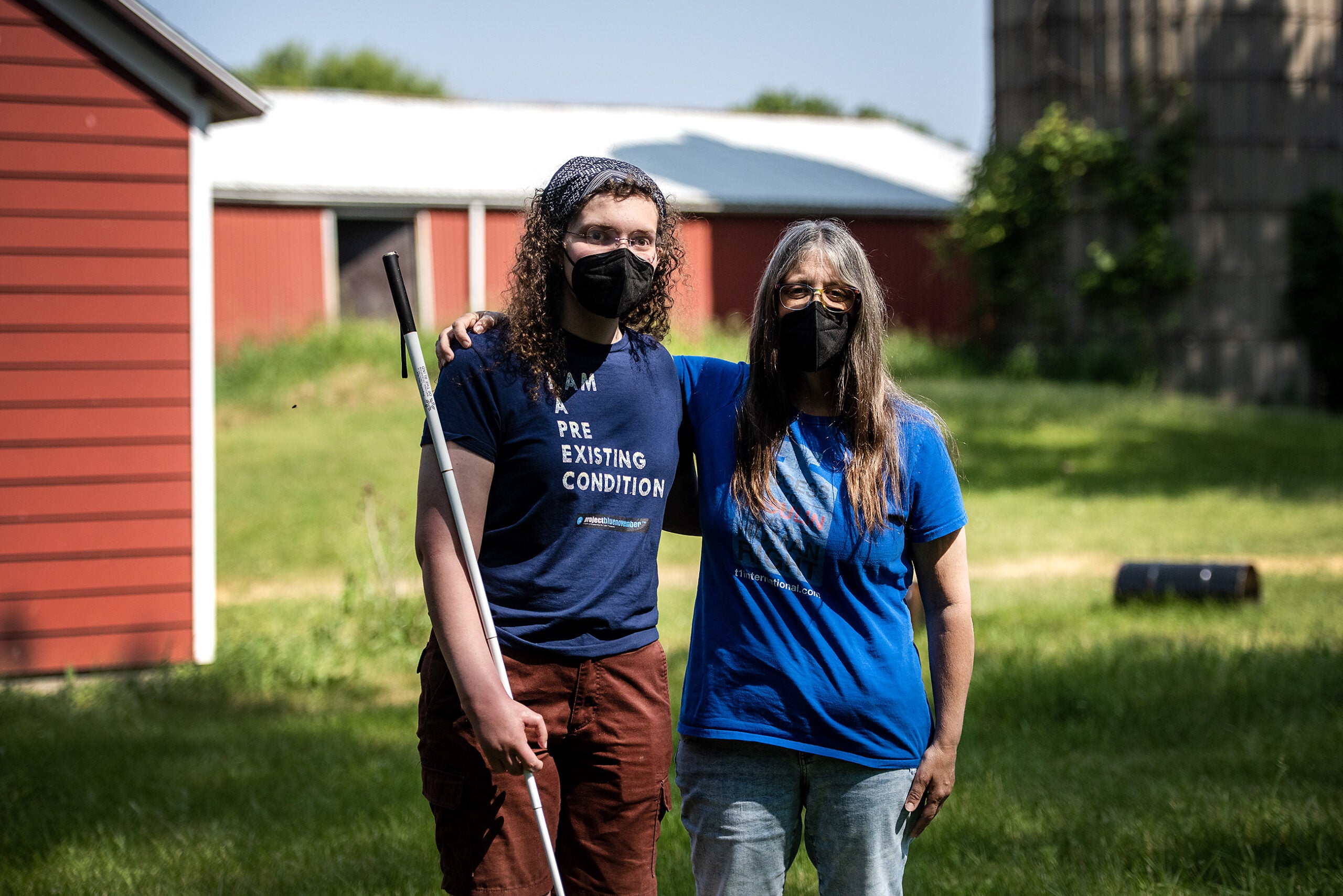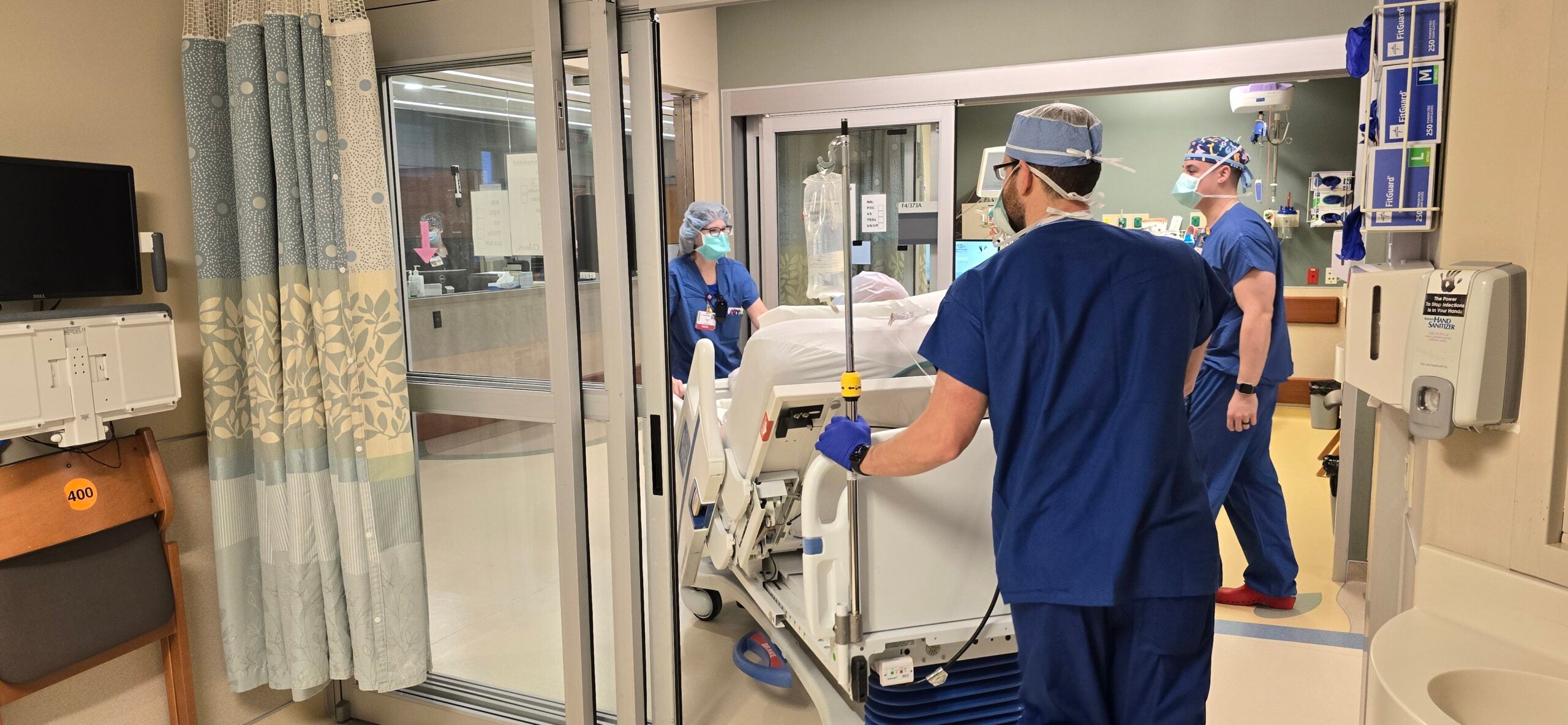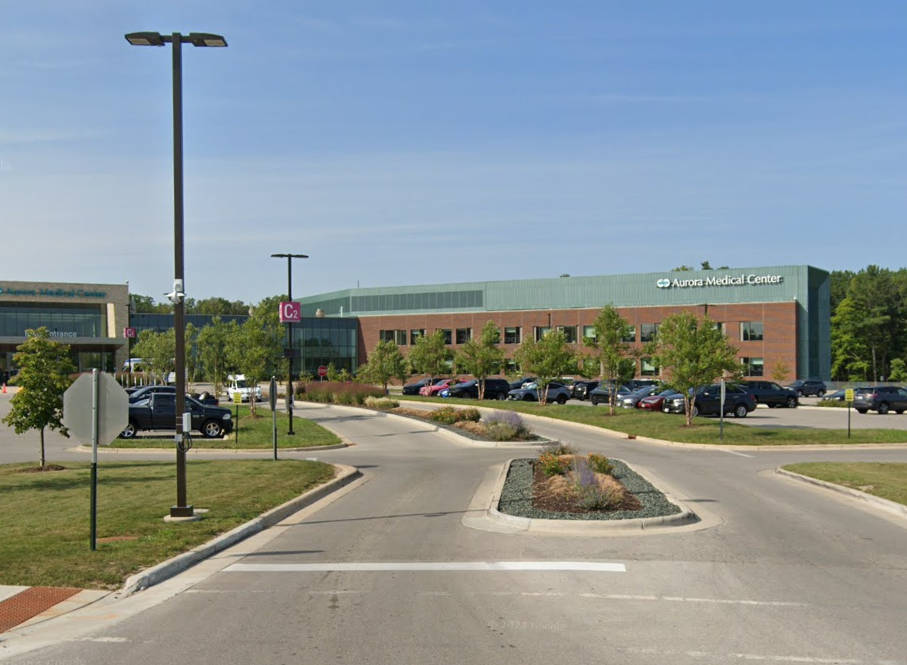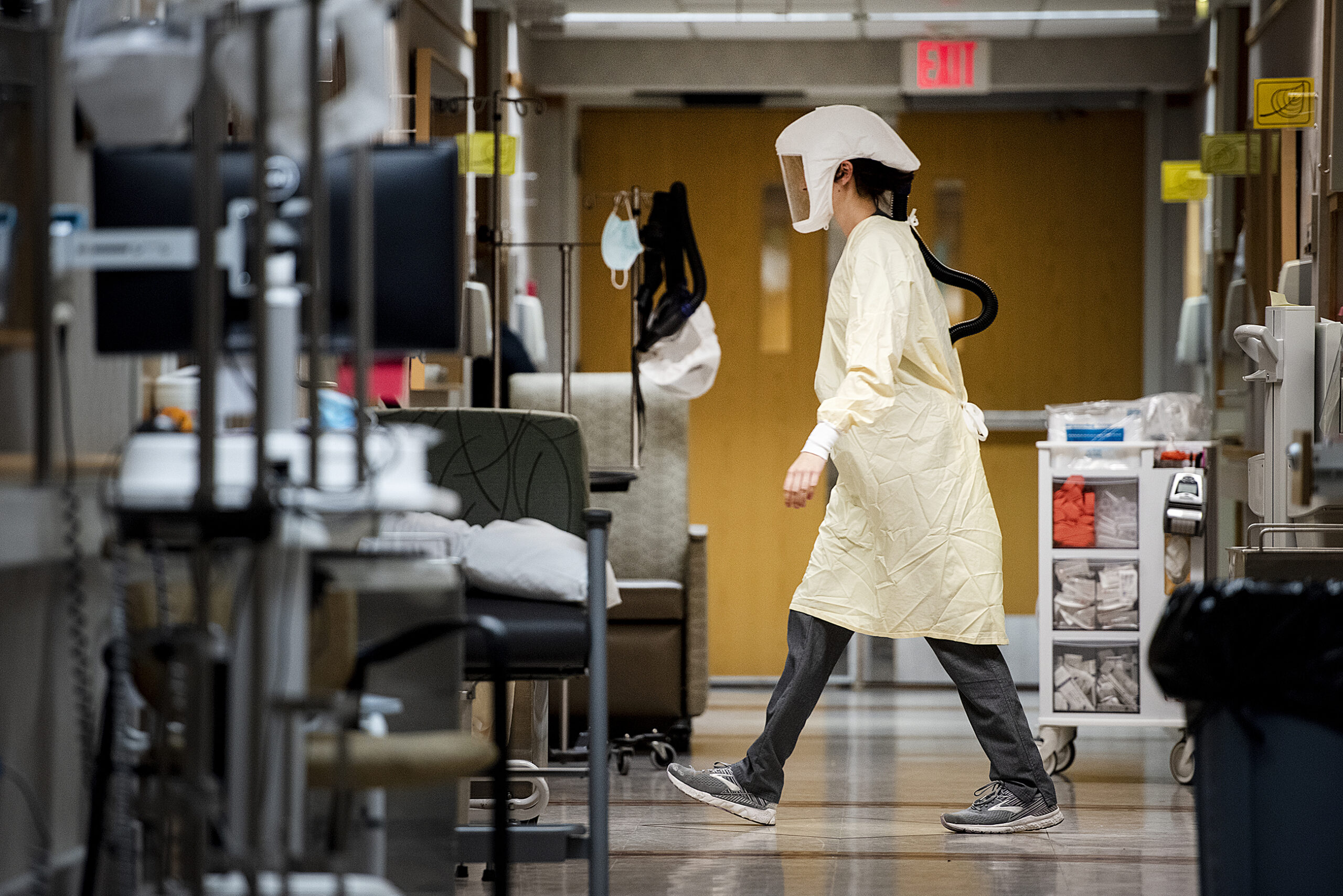When Chamomile Harrison returned to the hospital for another oncology appointment, she noticed the change immediately.
The workers taking her blood for tests were maskless. So were the workers who connected her to machines for an MRI. Harrison’s doctor was maskless, as well, until she asked him to put one on.
The hospital had rescinded its masking policies imposed at the onset of the COVID-19 pandemic, citing low respiratory infection rates and similar decisions from other hospitals across the country. But for Harrison, the retreat meant the return of longtime fears.
News with a little more humanity
WPR’s “Wisconsin Today” newsletter keeps you connected to the state you love without feeling overwhelmed. No paywall. No agenda. No corporate filter.
For eight years, Harrison has been receiving treatment for a brain tumor. Her body is extremely vulnerable to COVID-19 and other illnesses that are of mild concern to others. A common cold or broken bone could be fatal without treatment, according to her family.
When hospitals imposed masking policies during the pandemic, Harrison felt more protected. Now, she feels exposed once again.
“It felt like a betrayal,” she said. “This entire pandemic has felt like one betrayal after another.“
Harrison, 24, lives in Jefferson County in southeastern Wisconsin with her mother. When they trekked five hours to a Minnesota hospital in April, they estimated a quarter of the people in the hospital were wearing masks.
Some doctors are urging the return of masking mandates at hospitals. Dr. Kaitlin Sundling is a UW Health pathologist and an assistant professor at the University of Wisconsin-Madison’s School of Medicine and Public Health. She is trying to gather public support for overturning UW Health’s decision in early May to scale back its mask mandates.
“It really is a mistake to take that protection away and to put both patients and health care workers at risk,” she said.
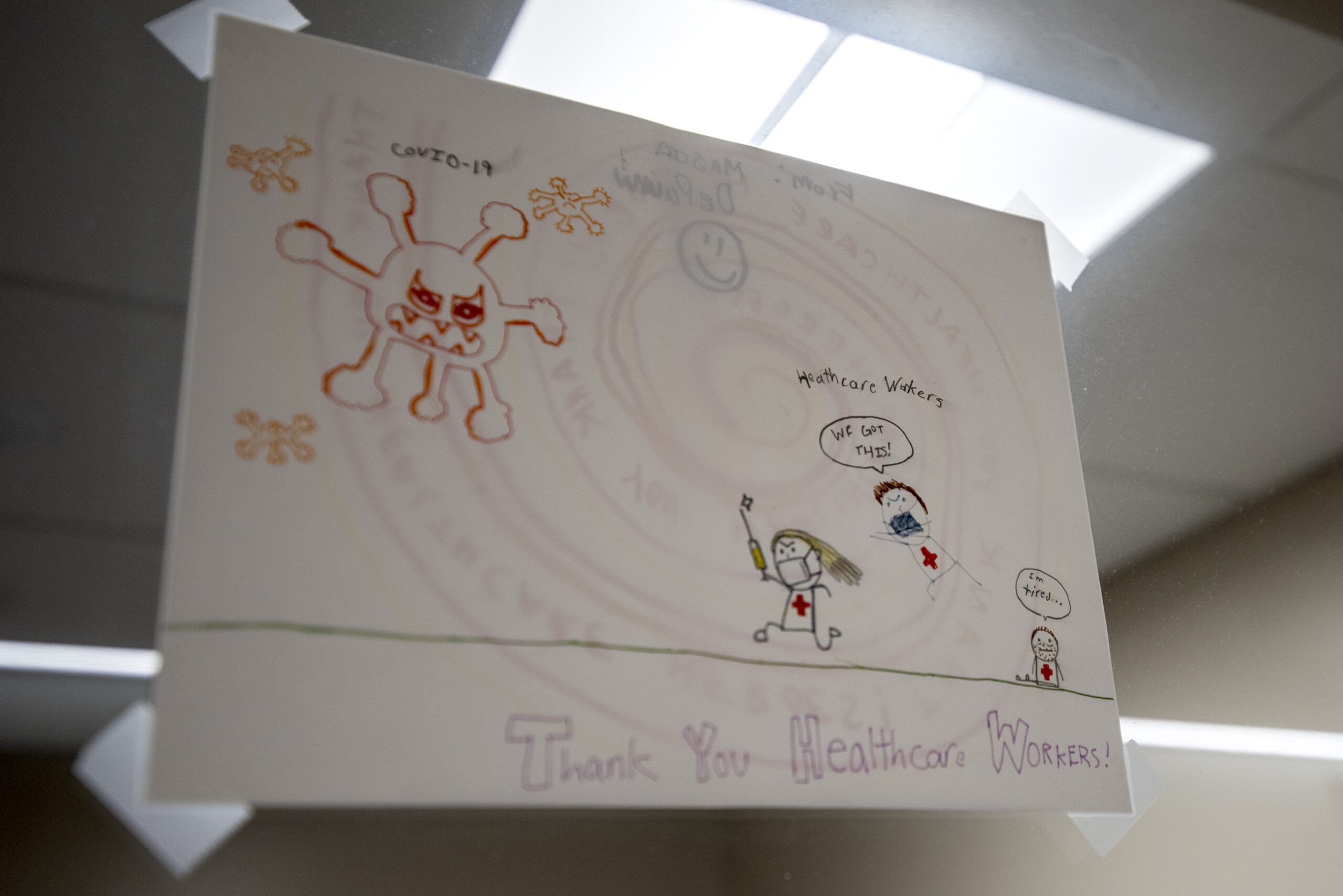
‘A step backward’
Sundling recently appeared on Wisconsin Public Radio’s “The Morning Show” to discuss her advocacy for masking mandates. She is an advisor to a national group called “Mask Together America” and a member of the People’s CDC, a volunteer group of health care workers seeking to improve public health and policies around COVID-19.
In Wisconsin and Illinois, Sundling is circulating a petition to reinstate masking at UW Health facilities. Aurora Health Care, Hospital Sisters Health System, UnityPoint Health – Meriter and others health care providers in Wisconsin are also easing masking policies.
At UW Health, masks are required in “high-risk ambulatory” settings, including cancer clinics, emergency departments and urgent care waiting rooms. UW Health Chief Quality Officer Dr. Jeff Pothof told WISC-TV that scaling back mask requirements was reasonable due to low enough COVID-19 levels in the community.
This time last year, the number of confirmed and probable COVID-19 cases in Dane County hovered around 300, according to the state health department. Now, the department has accounted for about 10.
Despite lower infection rates, Sundling called taking away masking mandates “a step backward.”
“Masking in health care is such a minor inconvenience,” she said. “We do many more complicated things in health care to protect patients and provide the best quality care — this is along the lines of handwashing and wearing gloves.”
At the start of the pandemic, Sundling worried about high-risk and immunocompromised family members, she said. But over time, she learned how COVID-19 can hurt previously healthy people, too.
The CDC estimates millions of Americans — about 15 percent — have experienced long COVID, or the presence of symptoms lasting three months or longer.
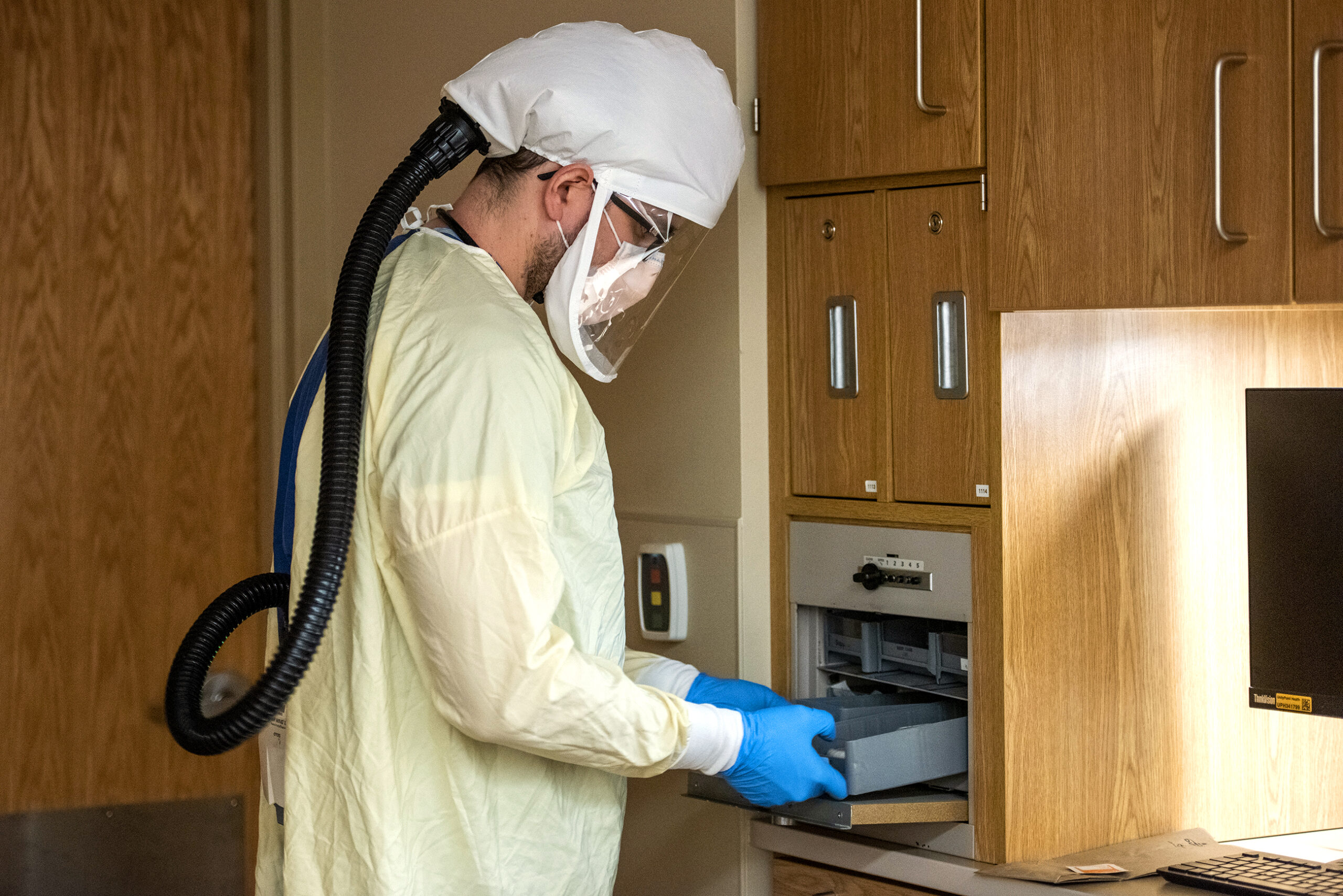
Requests for masking
When Sundling appeared on WPR’s “The Morning Show,” Harrison’s mother, Diane, called into the program and implored hospitals to require masks again. She had previously pleaded with hospital administrators without success.
Sundling called Harrison’s experience heartbreaking. She said the protection that masks provide should be guaranteed to everyone entering hospitals.
“It is possible to ask for masking,” she said. “It’s not easy. You shouldn’t even have to ask. It should just be provided.”
People visiting hospitals may request staff to wear a mask, and if needed, the request may be enforced as an American with Disabilities Act accommodation, Sundling said.
Harrison was a junior at UW-Whitewater when COVID-19 arrived in Wisconsin. She remembers a classmate expressing frustration over closures aimed to slow the pandemic’s spread, remarking that only people with disabilities would die.
“That set the tone of the pandemic for me,” she said. “Oh, people are OK with me dying.”
Harrison skipped many social gatherings and her college graduation during the pandemic. This month, she passed on attending her grandmother’s 88th birthday party out of caution.
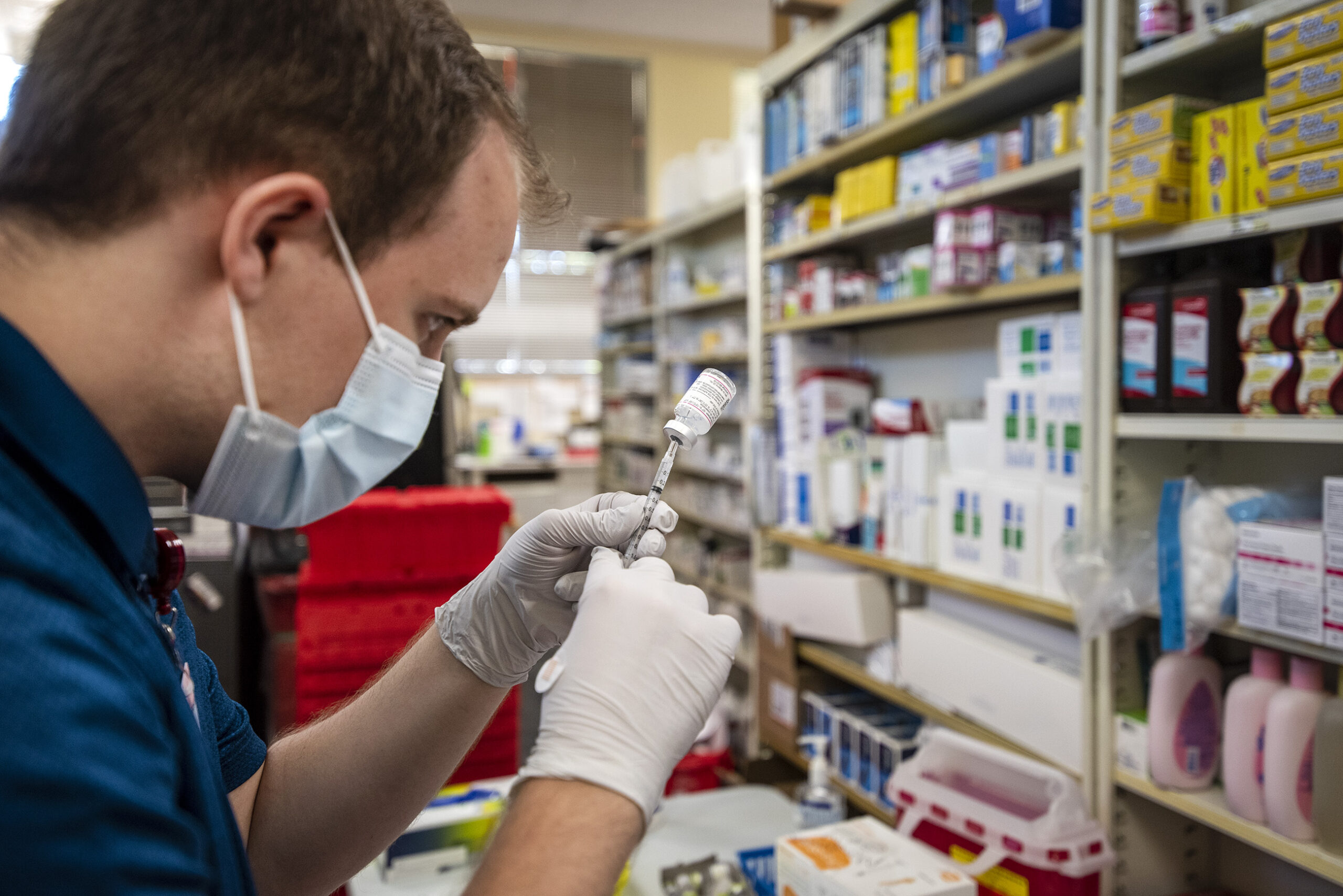
Mask policies forcing career changes
Jamie Fairfield also called into “The Morning Show” to urge the return of mask mandates. The Algoma resident left behind a 34-year career as a dental lab technician because her employer dropped its masking requirements in 2021.
Although disheartened to leave, Fairfield said her health had to come first. She has myasthenia gravis, an autoimmune disease. Soon after she quit, a former coworker spread COVID-19 to several others in the office, she said.
“I would have been in the line of fire,” Fairfield said.
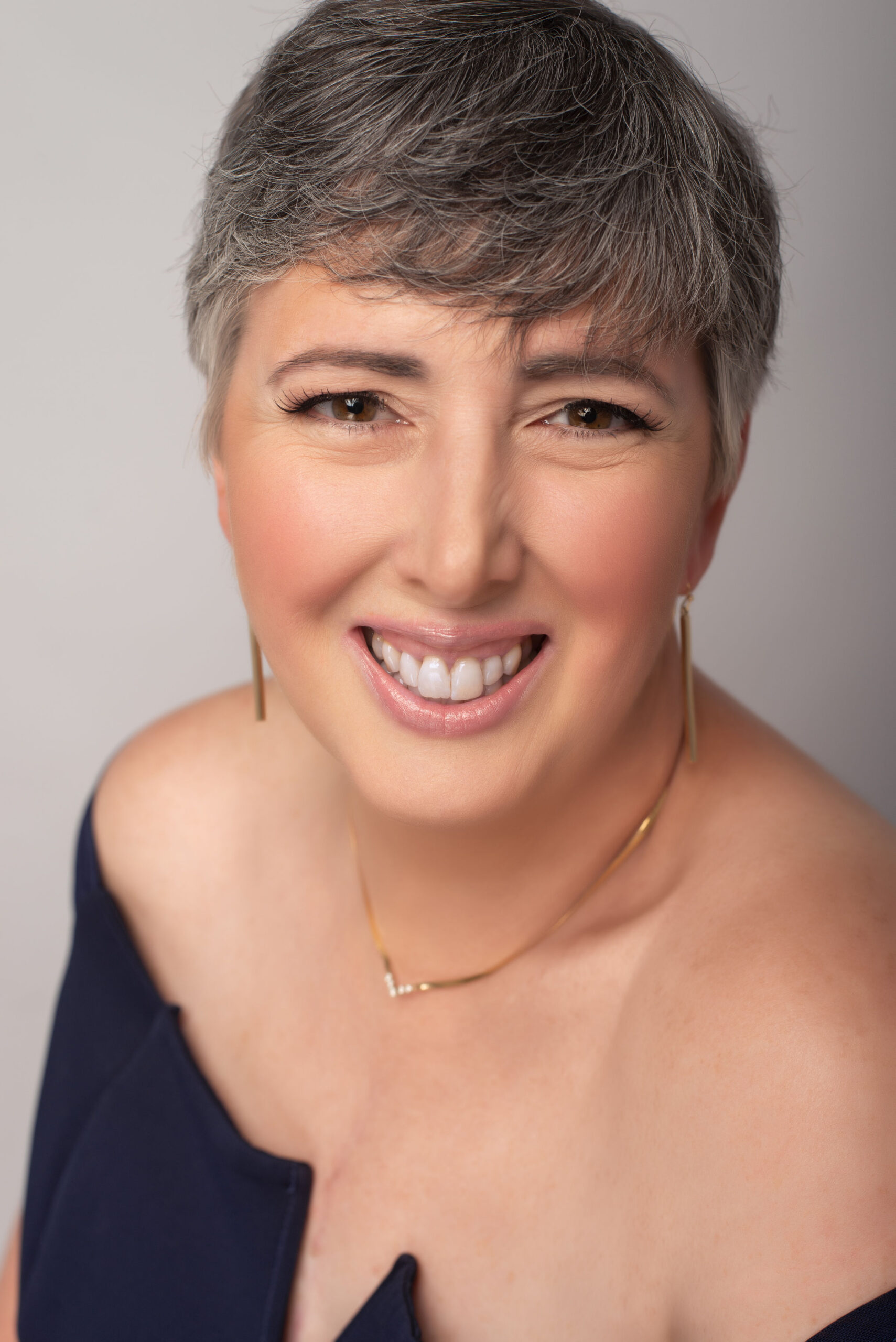
She stayed in health care, landing another job transporting specimens from Green Bay and Sheboygan clinics to labs for testing. But then her new employer dropped its masking requirements, too.
“Oh, well,” she said. “I can’t expect everybody else to mask just for me. I’m disappointed, but you can see where it’s going. You just have to go with the flow.”
Sundling said she stopped working in the hospital where some non-patient areas stopped mandating masks last year. She also stopped going to conferences and other events due to eased masking rules.
READ MORE: Before 2020, they had never worn masks. Now, they plan to wear them long into the future.
Harrison works for Disability Rights Wisconsin. She said the organization has had some of the best COVID-19 policies in the state. But the group has also recently dropped its masking requirements. Harrison is grateful for receiving remote work accommodations, though.
“If I wasn’t fully remote, I would be terrified right now,” she said. “It’s constant risk management. Is this event worth it? Is this something I can be safe at? Is this something that I will be judged if I am masking at? Is this something I can do? It’s always a cognitive load of trying to juggle responsibility, safety and not missing my life.”
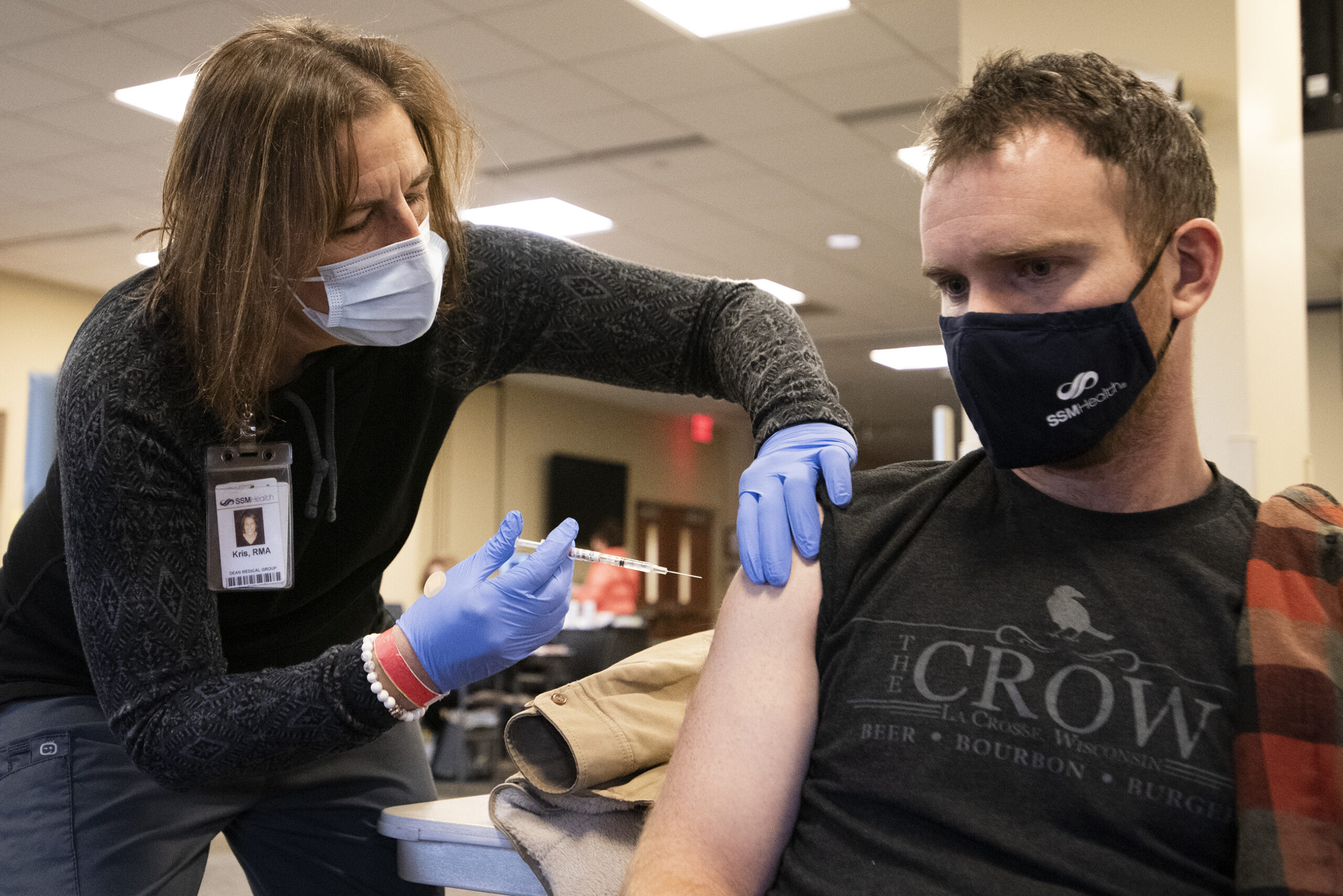
Picking new battles
While Harrison and Fairfield would feel safer with the return of widespread masking, they view that battle as being fought and over. Their attention is now elsewhere: educating friends, advocating for vaccines and calling for masks in specific places.
“I do not focus most of my energy on (universal masking),” Harrison said. “I have given up on trying to put energy into asking others to just blanket mask or even advocating for that in public because it’s a nonstarter for just terrible reasons.”
Fairfield said she has no energy left to fight for universal masking. She skips going to grocery stores and church. She has missed indoor weddings and funerals. She no longer performs in bell choirs. She loves music and wishes concerts that host multiple shows would offer one masked-only event for people like her.
When Fairfield called into “The Morning Show,” she wondered if she was bothering people with her “goofy problem.” But she felt better learning that others felt the same way.
“To have it affirmed that, ‘No, your voice needs to be heard. You have an important story to tell,’ that is very reassuring,” she said.
Diane called into the program hoping to reach at least one person, reminding them to consider others who are vulnerable.
“One day, you could wake up in the morning, go to work, take your 4K class to the fire station, get a phone call: ‘Get your daughter in the hospital now.’ And your daughter could be diagnosed with a mass on her brain,” she said. “Then, you’ll see it differently.”
Wisconsin Public Radio, © Copyright 2025, Board of Regents of the University of Wisconsin System and Wisconsin Educational Communications Board.

